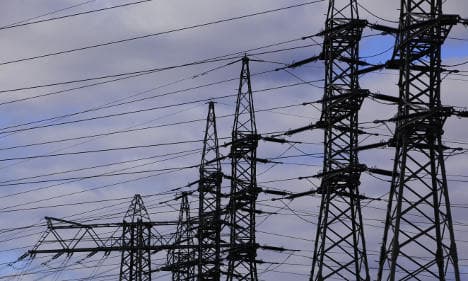Energy transition cheaper than expected

Grid operators vastly overestimated the cost of developing Germany's electricity grid to cope with the planned switch from nuclear to renewable energy, it emerged Sunday.
A new calculation of the costs of the switch, made by Germany's Federal Network Agency have deducted expenses that would have been paid anyway, significantly reducing the bill.
In the new report, seen by the Financial Times Deutschland newspaper, the energy transition would cost around €1.2 billion a year, as opposed to "at least €2 billion."
The new estimate flies in the face of a 10-year-plan presented by Germany's four high-voltage electricity operators (Tennet, Amprion, 50Hertz, and TransnetBW) at the end of May, which said that expanding Germany's electricity network to cope with the transition would cost €20 billion over the next decade.
The national grid needs to be beefed up to carry electricity generated by solar and wind power to replace, in part, nuclear power, which Germany has decided to abandon by 2022.
For example, operators had planned to expand internal European electricity trade anyway, with or without the nuclear shutdown, at a cost of €180 million a year. This cost was simply included in the operators' estimate of the transition.
By the same token, yearly repair expenses of €60 million were also factored into the cost of the nuclear shutdown, even though this money would have to be spent anyway.
On top of this, the planned grid expansion could save money in the future, according the agency, because it would avoid energy bottlenecks. "It is intuitively plausible that the investment in the development could pay for itself, at least in individual cases, quite quickly," agency head Jochen Homann said in the report.
For instance, the €20 million investment in the Thuringia electricity line would could save €47 million a year.
However, if local protests get their way in certain regions and force authorities to bury cables underground, the cost of certain expansions could multiply fourfold.
The Local/AFP/bk
Comments
See Also
A new calculation of the costs of the switch, made by Germany's Federal Network Agency have deducted expenses that would have been paid anyway, significantly reducing the bill.
In the new report, seen by the Financial Times Deutschland newspaper, the energy transition would cost around €1.2 billion a year, as opposed to "at least €2 billion."
The new estimate flies in the face of a 10-year-plan presented by Germany's four high-voltage electricity operators (Tennet, Amprion, 50Hertz, and TransnetBW) at the end of May, which said that expanding Germany's electricity network to cope with the transition would cost €20 billion over the next decade.
The national grid needs to be beefed up to carry electricity generated by solar and wind power to replace, in part, nuclear power, which Germany has decided to abandon by 2022.
For example, operators had planned to expand internal European electricity trade anyway, with or without the nuclear shutdown, at a cost of €180 million a year. This cost was simply included in the operators' estimate of the transition.
By the same token, yearly repair expenses of €60 million were also factored into the cost of the nuclear shutdown, even though this money would have to be spent anyway.
On top of this, the planned grid expansion could save money in the future, according the agency, because it would avoid energy bottlenecks. "It is intuitively plausible that the investment in the development could pay for itself, at least in individual cases, quite quickly," agency head Jochen Homann said in the report.
For instance, the €20 million investment in the Thuringia electricity line would could save €47 million a year.
However, if local protests get their way in certain regions and force authorities to bury cables underground, the cost of certain expansions could multiply fourfold.
The Local/AFP/bk
Join the conversation in our comments section below. Share your own views and experience and if you have a question or suggestion for our journalists then email us at [email protected].
Please keep comments civil, constructive and on topic – and make sure to read our terms of use before getting involved.
Please log in here to leave a comment.